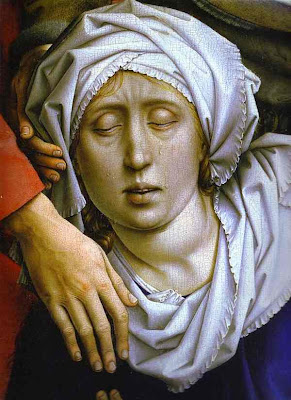Like (the story of), that harsh and oppressive man of pleasant speech (who) had planted a thorn bush in the middle of the road.
Travelers became his critics.
They told him often, "Dig this up!" (But) he didn't pull it out.
That thorn bush was becoming greater (in size) every moment,
(while) the feet of the people were becoming bloody from its stabs.
Peoples' clothes were torn by the thorns,
(while) the feet of the poor were severely wounded.
When the governor told him, (very) seriously, "Root it up!"
He replied, "Yes, I'll dig it out some day."
For a time, he gave promises about tomorrow and the next day.
(Meanwhile) his thorn bush became (more) strong and bulky in form.
One day, the governor said to him, "O crooked promiser!
Come forward to the task (assigned) by us.
(And) don't crawl back again (from it).
He answered, "O uncle! The days (to accomplish it) are between us, O uncle."
(The governor) said, "Hurry, (and) don't stretch out (paying your) debt to us."
You who are saying, "Tomorrow," should know this:
that with each day that time keeps coming,
That bad and corrupt tree keeps getting younger and
this digger keeps getting old and (also) needy and desperate.
The thorn bush (gains) in strength and rising higher,
(while) the uprooter of the thorn (bush) (gains) in old age and becoming less.
Every day and every moment the thorn bush (is) green and fresh,
(while) the thorn (bush) digger (is) more groaning and dried-up every day.
It is becoming younger, (while) you (are becoming) older.
Be quick, and don't gamble away your time (wastefully).
Know (that) every one of your bad habits
(is like) a thorn bush (which) has stabbed (your) feet many times.
You have been wounded many times by your own (bad) qualities.
You lack sense (and) you've become very senseless.
If, in regard to other people being wounded--
which is because of your ugly disposition
that it is made to reach (them)--
You are thoughtless and unaware, at any rate,
you are not (inattentive) of your own wounds.
(For) you are the (cause of) torment for (both) yourself and every stranger.
Either pick up the axe and strike manfully--
and tear up this gate of Khaybar, like Ali--
Or make these thorns united with the rosebush,
(and) make the light of the friend (of God) united with the fire (of your passions).
So that his (spiritual) light may kill your fire,
(and so that) union with him may make your thorns a rose garden.
RUMI















